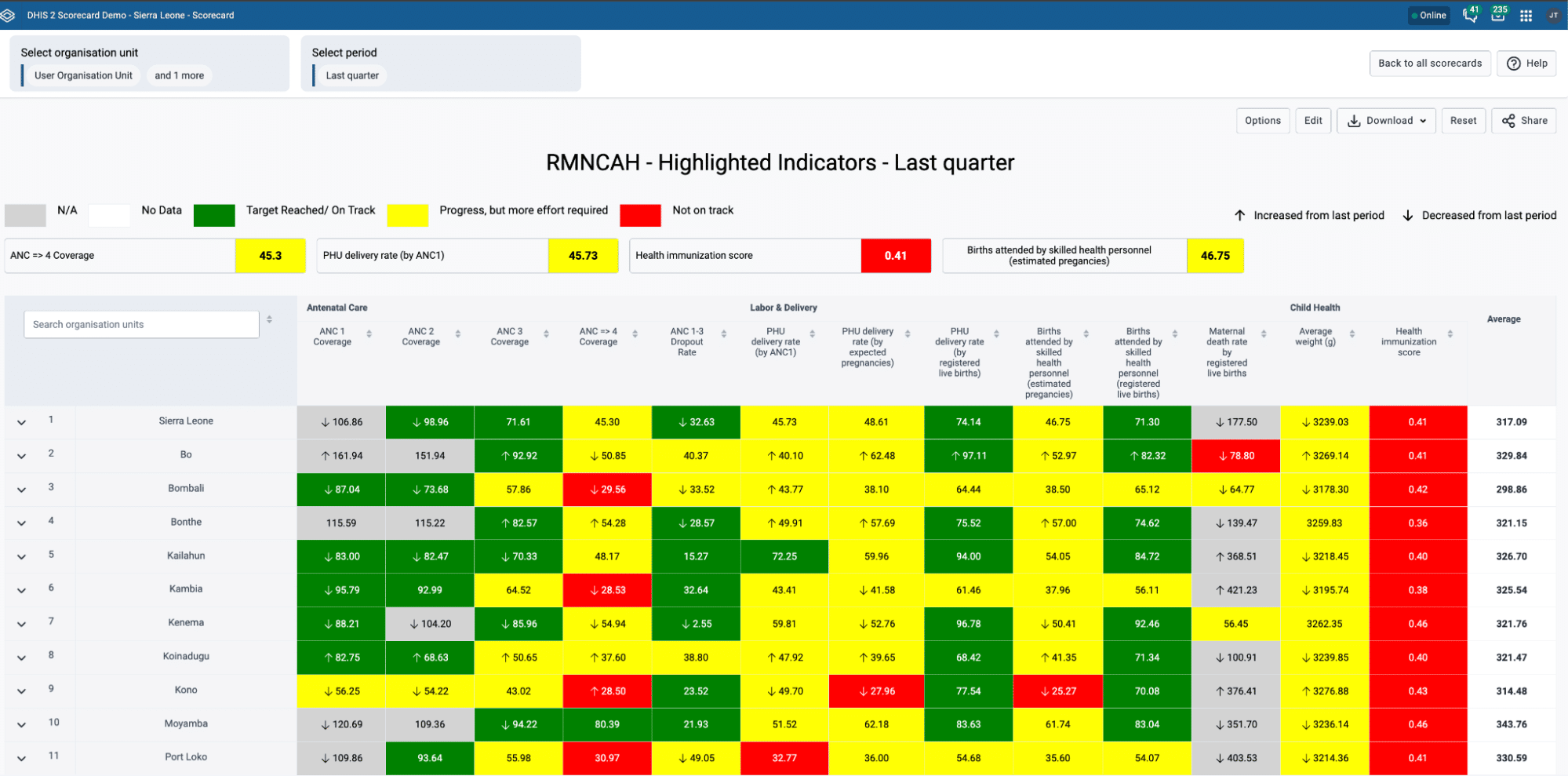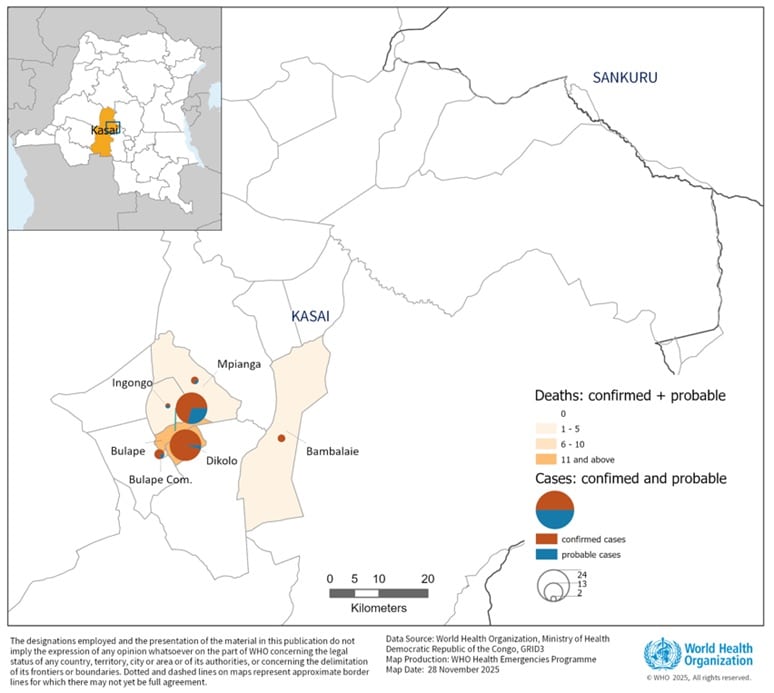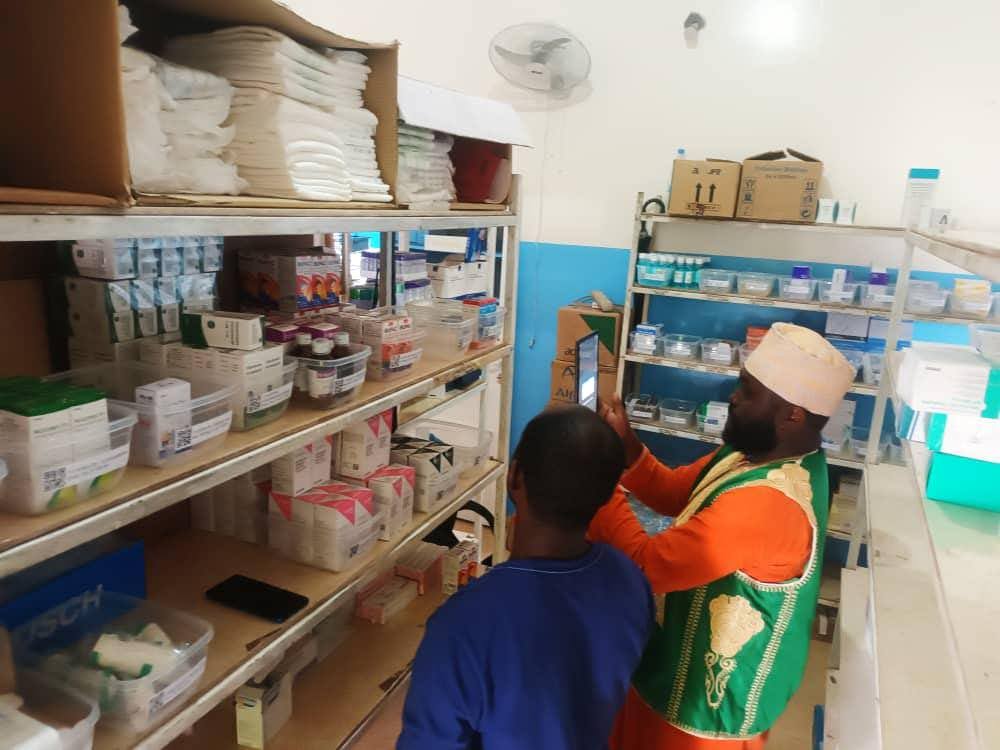The DHIS2 Annual Conference takes place from 15-18 June 2026! Learn more

Building Resilient Immunization Systems in Northwest Syria with DHIS2
The Assistance Coordination Unit has deployed a DHIS2-based e-Tracker for immunization data management, registering more than 242,000 children and enabling health workers to track progress in real time.
Achieving adequate immunization coverage for children in Syria has been extraordinarily challenging over the last 15 years, as the country of more than 24 million people has grappled with a decade-long civil war, coupled with extreme heat and droughts, and the effects of a serious earthquake in the country’s northwest. Following the outbreak of conflict in 2011, vaccination coverage dropped from more than 90% for the Diphtheria, Tetanus & Pertussis vaccine, to less than 10% in some areas. In the absence of a coordinated immunization program across the nation, vaccine-preventable diseases like polio and the measles have emerged in recent years. Today, the country is also facing an influx of refugees from Lebanon, while tens of thousands of Syria’s own displaced citizens return to their home country as well, stretching already strained services and infrastructure, according to the UNFPA.
To address these urgent needs, the World Health Organization (WHO) supported the re-establishment of routine vaccination services in the region, and began implementing DHIS2 in northwest Syria (a region under opposition control) in 2019. In 2022, the Assistance Coordination Unit (ACU)—a Syrian national, non-governmental, and non-profit organization that coordinates efforts between donors, agencies, and local partners—expanded this system by launching a DHIS2-based e-Tracker tailored specifically for Syria’s immunization centers. A 2024 report by ACU highlights the impact of DHIS2, noting, “the implementation of DHIS2 for immunization in ACU-EPI (Expanded Programme on Immunization) centers has led to significant achievements across all levels.” As of August 2024, ACU teams had registered 242,432 children, enabling health workers to follow up with defaulters and coordinate targeted outreach in underserved areas. Though the program’s effect on coverage cannot currently be assessed, “it has clearly contributed to reducing children’s dropout rates by simplifying the automatic extraction of dropout lists,” said Mohammad Jamal Al Jadan, a data management coordinator for ACU.
Developing and implementing the Electronic Immunization Registry
To meet Northwest Syria’s need for timely and accurate immunization data, and in close coordination with the Syria Immunization Group (SIG) responsible for the routine vaccination program in Northwest Syria, ACU created and implemented a DHIS2-based e-Tracker—also called an Electronic Immunization Registry (EIR) for use in ACU immunization centers. The e-Tracker uses WHO immunization standards to increase coverage, reduce under-immunization, and provide reliable data for decision-making. Through collaboration with engineers from the Early Warning Alert and Response Network (EWARN), ACU launched e-Tracker with adaptations to operate smoothly within Syria’s unique immunization requirements, enabling health workers to collect individual-level data, track immunization schedules, and send follow-up reminders.

To manage the transition to e-Tracker, ACU carried out several key activities in multiple phases, in close coordination with the SIG team, and with funding from the Gates Foundation. In January 2022, ACU developed the EIR package, tailoring it to the Syrian context and immunization schedule while participating in various international events to learn from other countries’ experiences. By August 2022, the organization had trained a total of 59 vaccination teams in online and offline data entry across three pilot phases, starting with 11 teams in June and followed by 18 teams in July. ACU then established a comprehensive set of more than 270 approved indicators and rules for tracking, and created a dashboard to effectively display these tracked indicators. In December 2022, staff extracted lists of eligible children and those who missed vaccinations, implementing Python code to enable interoperability between DHIS2 and WhatsApp for automatic notifications regarding overdue and upcoming vaccination events for children.
Currently, ACU is reviewing data to identify service data for reports, from both paper-based immunization registers and DHIS2. Additionally, the organization is working to develop datasets that capture logistics data between central cold chain stores and district cold chain stores, to validate reported facility logistics data. To ensure smooth implementation, ACU has conducted orientation meetings at the field, district, and national levels, and works with technical teams at both the national and district levels to provide regular on-site support for health workers, to ensure that they can capture data accurately and in a timely manner.
Improving immunization outcomes through data management
With the rollout of the DHIS2 e-Tracker, ACU has created more effective, timely, and accurate data collection and analysis across Syria. “These dashboards are crucial in creating a detailed understanding of the immunization landscape in Northern Syria, facilitating data-driven decision-making and timely interventions to improve vaccination outcomes,” the ACU report notes. DHIS2’s flexibility and detailed indicators empower health workers to respond swiftly to local needs and tailor their efforts accordingly. By using indicators and customized dashboards in DHIS2, supervisors can now monitor each health facility, quickly identifying gaps in coverage and making data-driven decisions to address them.

This DHIS2 system supports immunization teams in real-time planning and performance tracking, which has streamlined vaccine allocation and resource management. DHIS2’s reports also guide quarterly goals and help the Syria Immunization Group (SIG) and Early Warning Alert and Response Network (EWARN) identify high-risk areas. By providing real-time feedback on immunization indicators, DHIS2 ensures that health officials have access to detailed performance data across districts, which allows for quicker responses and better planning in immunization campaigns.
“These dashboards are crucial in creating a detailed understanding of the immunization landscape in Northern Syria, facilitating data-driven decision-making and timely interventions to improve vaccination outcomes,” the report states. “The flexibility and depth of the DHIS2 platform allow health workers to respond swiftly to emerging challenges, ensuring vaccination efforts are both effective and efficient.”

Targeting outreach and expanding to new areas
The DHIS2 e-Tracker implementation in ACU immunization centers has led to significant achievements so far, including new registrations for more than 242,432 children as of August 2024. Data access at the center level has been crucial for identifying and following up with patients who miss appointments, and has enabled more targeted outreach and immunization events. ACU has also used this data for facility performance review and improvement, and to provide immunization reports to inform decision making by the Syria Immunization Group, EWARN, and others.
Next, the project aims to expand to all vaccine teams in the northwest Syria region, and plans to include school vaccines and Covid vaccines as well. ACU is also working toward adding forms for logistics management, and expanding to track adverse events. “We are currently in the process of expanding this implementation to cover all vaccination teams in northwest Syria, in collaboration with the Syria Immunization Group and with support from a project funded by Gavi,” Al Jadan said. “Recently, we completed the training of the remaining 84 vaccination teams, bringing the total number of teams using the DHIS2-based electronic immunization registry program to 134 across northwest Syria.”
For more information about ACU Syria’s work in Northwest Syria, watch this interview with Al Jadan, recorded in 2023.


